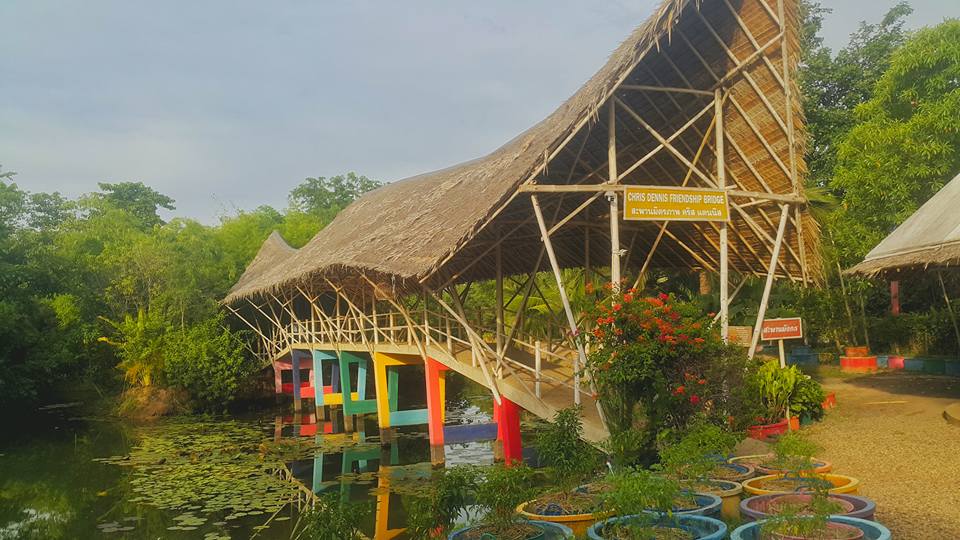Building Environmentally Sustainable Schools: Meet Thailand’s “Bamboo School"

You might be surprised to hear that “sustainable farming” is an essential part of a school’s curriculum. But then again, you might not be thinking of this school.
Thailand’s “Bamboo School”, or, officially, the Mechai Pattana School, was founded in 2009 in Thailand’s rural Buriram province by Mechai Viraivadya as a free private school for disadvantaged children and their families. Here are a few of its unusual quirks.
1. The school itself is made of bamboo
The school’s buildings themselves are constructed out of locally available bamboo. This helps students to keep cool in the heat by allowing air to naturally ventilate the buildings while being eco-friendly.
2. Everything is vibrant and colourful
Walking around the grounds, you immediately notice the multicoloured bricks and rings of concrete. Students spend time painting these features in bright shades of colours - something you wouldn’t see at your local school.
3. And the bridge onto the campus is a dazzling rainbow.
The mastermind behind the school, Mechai Viraivadya, said that the students’ journey across the water every day represented the passage from “ignorance to knowledge”. Deep thoughts...
4. There is a huge focus on sustainable agriculture.
Colourful concrete rings line the pathways, and are filled with soil so that vegetable gardens can be planted anywhere in the school. Students care for these plants, and they are used for school meals or sold as part of the school’s business enterprise.
5. Their multipurpose geodesic dome is the largest one in the world made out of bamboo
Talk about a world first! Their geodesic dome, used for various activities, is currently the largest one of its type anywhere in the world. It protects from the rain and sun, but lets in air to create a breeze inside.
6. The school is run by students, for students.
Students rule in the bamboo school. Purchasing is done by a committee of students, who do their own research and decide on the final choice to be bought using the school’s funds. Even the staff, including the school’s principal, are auditioned in front of a selected group of students, so that they have the final say in their own education.
7. Students are taught to respect their environment, but also to make use of it.
While the school prides itself on its low environmental impact, it is by no means isolated. Entrepreneurial skills are also a part of the curriculum, and job opportunities and internships are on offer for interested students. For example, students have had work experiences at Thailand’s IKEA store.
Not only that, the school also partners with other organisations and businesses to sell its produce. Its gardens produce a variety of fresh vegetables as well as mushrooms, which are sold to help fund and redevelop the school.
8. The school and its students help other schools to develop similar programs.
You might think that the students have enough on their hands, juggling responsibilities like sustainable farming and running the school, not to mention their full-time education. Incredibly, students from the Bamboo School travel to other schools in order to teach sustainable farming and enterprise methods to their fellow students across the country.
To learn more about this remarkable school in Thailand, visit their website or donate to help them continue their work in pioneering alternative education reform.